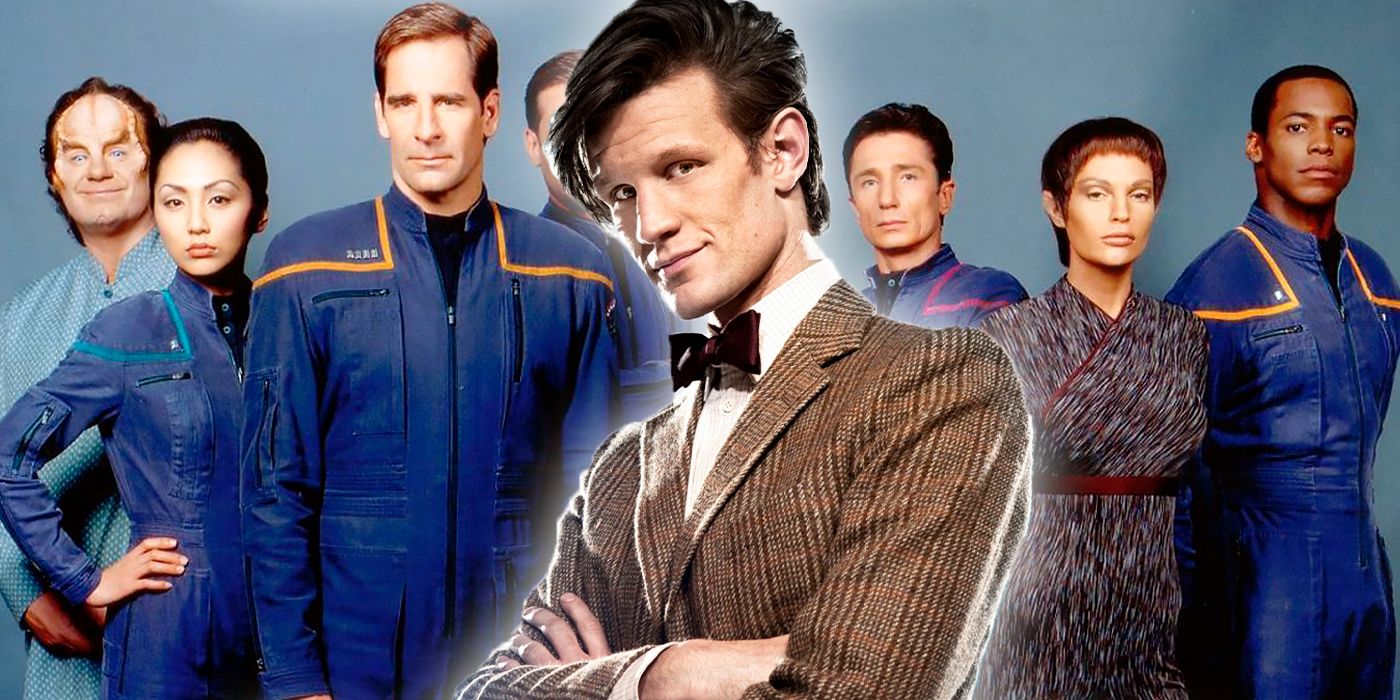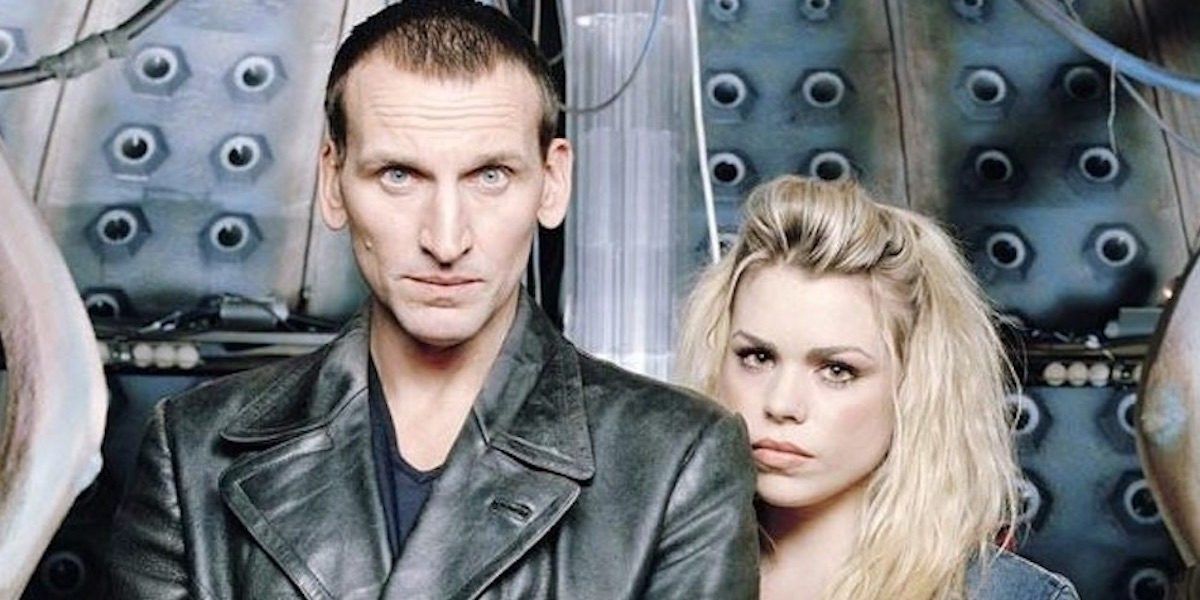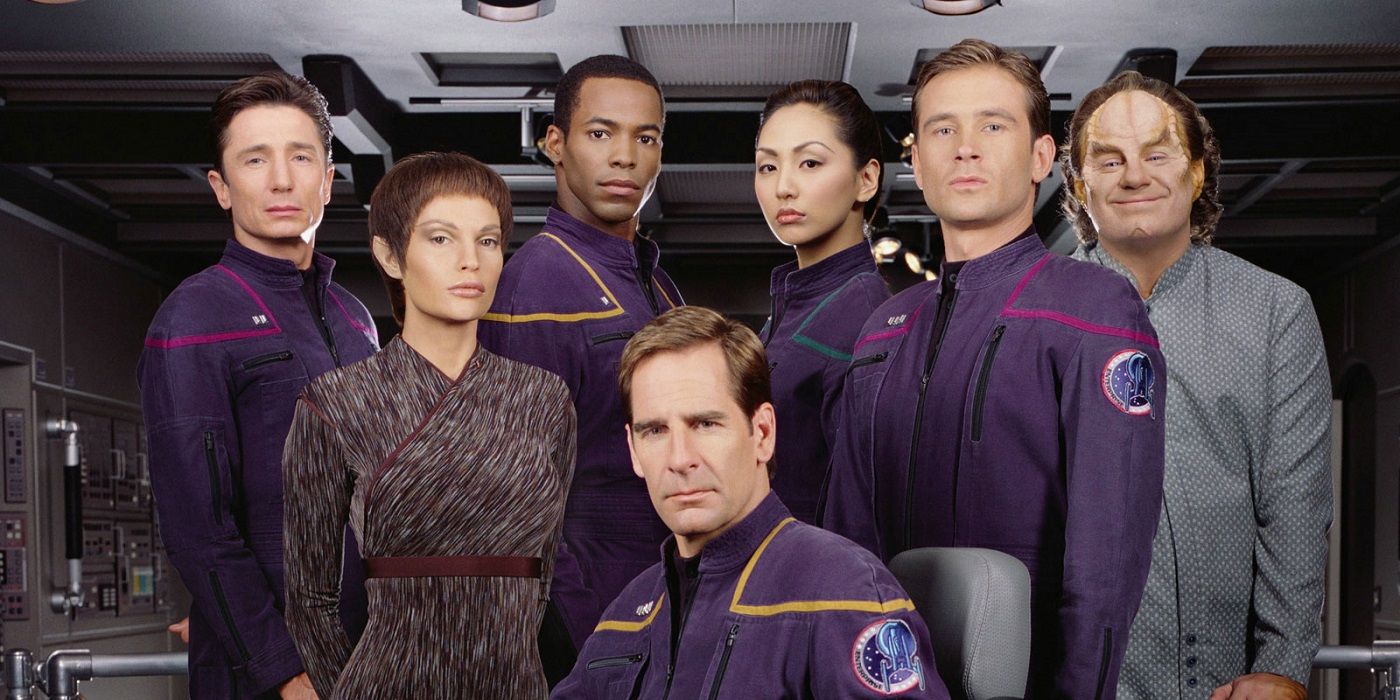Star Trek is one of the biggest and most popular science fiction franchises in the West, and perhaps in the world. Another increasingly popular entry in science fiction media is the British series Doctor Who, which has also gone on to attain international success since its reboot in the 2000s. Back when Doctor Who was first returning to British television, there was an ill-fate crossover planned with the Starship Enterprise crew. This crossover fell through due to one franchise dimming as the other shined. Here's how the eventually canned crossover between the two series fell apart.
The planned crossover between two of television's science fiction juggernauts was spoken about in A Writer's Tale, a book written by Doctor Who screenwriter Russel T. Davies. The rebooted Doctor Who would have crossed over with Star Trek: Enterprise, which, for a while, was the last Star Trek show on television.
This actually was somewhat advantageous, as Enterprise was chronologically the closest to the more contemporary Doctor Who continuity. Enterprise was set an entire century before the original Star Trek series, revolving around mankind's first steps into making a presence in the cosmos. It also featured a narrative concept called the Temporal Cold War, which, like Doctor Who, involved all manner of "wibbly-wobbly, timey-wimey". The show's second season also involved the Enterprise crew finding a construct very much like the good Doctor's TARDIS. This object traveled through time and was even larger on the inside than it was on the outside. Unfortunately, these interesting ideas didn't manifest in the two franchises truly coming together on the silver screen.
Of course, the "TARDIS" seen in Enterprise was more of a wink to Doctor Who fans than any sort of constructive foreshadowing of a potential crossover. After all, during the early parts of Enterprise's run, Doctor Who was still on its incredibly extensive hiatus from television, following a series of rating decreases. This turned around in 2005 when the franchise finally came back in a bigger way than ever. The rebooted TV series was not only a hit in its native U.K. but gradually reached new fans in other Western countries, namely the United States.
Unfortunately, the same could not be said for Enterprise. Whereas the soon-to-come Doctor Who relaunch reveled in fanservice and bringing back beloved concepts, Enterprise was, in many ways, a sort of anti-Star Trek. As such, it initially dropped the Star Trek title, distancing itself from more far-flung concepts with a more contemporary setting, and in general, tried to reach audiences who might not have normally cared about the franchise. This was showcased even in its intro, which notoriously had a much-maligned pop song in lieu of the franchise's typical orchestral music. Sadly, this didn't succeed with fans or critics, and the show ended after four seasons.
Thus, just when Doctor Who returned from its television hiatus, Star Trek entered its own, which lasted for a total of 18 years. With no show to crossover with, any plans across the pond for the Doctor to be beamed up were quickly jettisoned as well. With both franchises now back on the air, however, there's definitely a chance for Davies' greatest idea to finally come to fruition.



